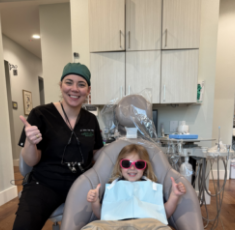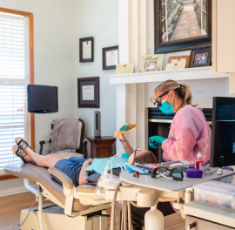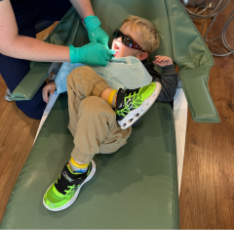More Attractive Place?
Snoring Denton
Everyone Needs a Good Night’s Sleep
Snoring can be an early symptom of sleep apnea, but even if you haven’t progressed into sleep apnea; even if you feel refreshed and rested, your snoring could be affecting the person you sleep with. Or maybe you sleep in separate rooms because of the snoring. You and your loved ones don’t have to suffer from the effects of snoring.
What Causes Snoring?
The sounds we call snoring, occur when tissues in the airway begin vibrating due to turbulence in the air passing through the airway while breathing. This turbulence is caused by disruptions of the normal airflow. If the airway narrows, the air moves faster and is turbulent. If the tissues surrounding the airway get more flexible (normal with aging) they vibrate more.
Risk Factors for Snoring
- Age – Tissues surrounding the airway get more pliable with age, as our body’s ability to repair or make new strong collagen decreases.
- Obesity – weight gain leads to fat being deposited in the front of the neck and under the chin. These tissues then collapse back on the airway during sleep which narrows the airway. That triggers snoring and eventually sleep apnea. In addition, fat deposits accumulate in the base of the tongue which narrows the top of the airway.
- Smoking – Smoking causes inflammation in the tissues of the airway. Inflamed tissues become more pliable and are more likely to vibrate.
- Nasal Blockage or Congestion – If you are unable to breathe through your nose while sleeping, mouth breathing can induce snoring.
Treatment Options for Snoring
Lifestyle Changes
- Weight loss
- Smoking cessation
- Reduce or eliminate alcohol before bed
- Treat nasal congestion/obstructions
- Side Sleeping – postural therapy
NightLase – Because 80% of snoring is caused by the tissues of the roof (soft palate) of the mouth and the sides of the upper airway (tonsillar pillars). Stiffening these tissues can reduce or eliminate snoring.
Oral Appliance – The same advancement appliance that is used for sleep apnea can be used to stop snoring. When using these appliances for sleep apnea, the first symptom that is always eliminated is snoring.
Surgery – ENTs have several surgical options to stiffen or removing the vibrating tissues in the upper airway. They can also place an electrode in the muscles of the tongue that will trigger the tongue to move forward if a sensor detects a narrowing of the airway.
What Is NightLase?
NightLase is a non-surgical, non-invasive procedure that uses two different laser wavelengths to stimulate the muscles and tissues of the floor of the mouth, tonsillar pillars and soft palate to form new, stronger collagen. The renewed collagen production causes these tissues to stiffen which reduces or eliminates the vibrations that are snoring. As the tissues become stronger, they also contract which increases the size of the oral airway to improve airflow. Treating the back and base of the tongue triggers a process called apoptosis, in which fat cells in the tongue are broken apart and removed by the body reducing the size of the back of the tongue to normal size.







